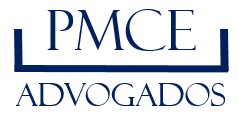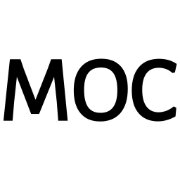Best Communications & Media Law Lawyers in Porto
Share your needs with us, get contacted by law firms.
Free. Takes 2 min.
List of the best lawyers in Porto, Portugal
About Communications & Media Law in Porto, Portugal
Communications and Media Law in Porto, Portugal, covers a broad set of regulations and legal principles that govern how information is created, distributed, and consumed. This includes the operation of radio and television broadcasters, print and online journalism, telecommunications, internet service providers, advertising agencies, and content creators. With the rise of digital media, the field has evolved rapidly, dealing with new challenges related to data protection, defamation, intellectual property, freedom of expression, and public interest. Whether you are an individual, company, or non-profit operating in Porto, it is important to understand your rights and responsibilities in the dynamic Portuguese media landscape.
Why You May Need a Lawyer
There are many situations in which legal assistance is advisable within Communications and Media Law. Common reasons include:
- Being accused of defamation, slander, or libel in published material or online
- Facing restrictions on freedom of expression or press by governmental authorities
- Negotiating or drafting contracts related to content creation, publication, broadcasting, or distribution
- Dealing with copyright, trademark, or intellectual property disputes regarding media content
- Navigating data protection issues related to the collection and dissemination of personal information
- Complying with advertising, sponsorship, and competition regulations
- Responding to regulatory investigations or fines by authorities such as ANACOM or ERC
- Pursuing claims against unfair or false reporting
- Managing issues arising from social media posts or influencer activities
Legal professionals offer guidance in complex situations, ensure compliance with laws, and safeguard your rights in contentious matters.
Local Laws Overview
In Porto, as in the rest of Portugal, Communications and Media Law is shaped by a combination of national legislation, European Union directives, and international agreements. Some of the principal laws and regulatory aspects include:
- Freedom of Expression and Press: Guaranteed under the Portuguese Constitution, but subject to limitations regarding hate speech, incitement, and privacy.
- Media Regulation: The Entidade Reguladora para a Comunicação Social (ERC) oversees radio, television, and press sectors, ensuring ethical and legal compliance by media organizations.
- Telecommunications: The Autoridade Nacional de Comunicações (ANACOM) regulates telecom markets, licensing, data transmission, and user protection.
- Defamation and Privacy: Strict laws exist to protect individuals against defamatory content, invasion of privacy, and unauthorized use of images or personal data.
- Copyright and Intellectual Property: Overseen by national laws and EU directives, protecting original works in media, journalism, and content creation.
- Data Protection: Governed by the General Data Protection Regulation (GDPR) and the Portuguese Data Protection Law, affecting how data is handled, stored, and shared.
- Advertising and Sponsorship: Regulated to ensure transparency, accuracy, and fairness in all forms of media, including digital platforms.
Understanding these key areas is essential for compliance and protecting your interests in media and communications activities.
Frequently Asked Questions
What is considered defamation in Portuguese media law?
Defamation occurs when false statements are made publicly that damage the reputation of an individual or entity. Both written (libel) and spoken (slander) forms are considered serious offences and can result in civil liability or criminal penalties under Portuguese law.
Is freedom of the press fully protected in Portugal?
Yes, freedom of the press is constitutionally protected, but there are boundaries to prevent hate speech, incitement of violence, and violations of privacy or honor.
Are there special considerations for online publications?
Yes, online publishers are subject to the same laws as traditional media, but with additional obligations related to data protection, digital security, and advertiser disclosure.
How are telecommunications regulated in Porto?
ANACOM is responsible for regulating telecom operators, internet service providers, and ensuring fair competition, consumer protection, and compliance with national and EU standards.
What are the main regulatory bodies overseeing media law in Porto?
The two primary bodies are ERC (for media and press) and ANACOM (for telecommunications). They ensure legal and ethical standards are maintained.
How can I protect my intellectual property as a media creator?
By registering your works with the appropriate national office and ensuring all contracts specify rights, you can enforce your intellectual property. Portuguese and EU laws offer robust protection for original media works.
What laws apply to advertising in the media?
Advertising is regulated to prevent misleading claims, ensure honesty, and protect consumers. All advertisements must comply with national standards and European directives on advertising practices.
What should I do if I am accused of publishing illegal content?
Seek legal advice immediately. A lawyer can advise on your rights, the validity of the claim, possible defenses, and how to respond to authorities or litigation.
How is personal data handled in media and communications?
All data processing must comply with GDPR and national data protection laws. Consent is required for the use of personal data, and individuals have rights regarding information access, correction, and erasure.
What are my options if I feel a publication has violated my rights?
You may lodge a complaint with ERC, seek a public correction or retraction, and pursue civil or criminal action for damages or other remedies. Legal advice is recommended to determine the best course of action.
Additional Resources
Several important organizations and resources offer support and information on Communications and Media Law in Porto:
- Entidade Reguladora para a Comunicação Social (ERC): Regulates press, radio, and television.
- Autoridade Nacional de Comunicações (ANACOM): Oversees telecommunications and digital communications.
- Instituto Nacional da Propriedade Industrial (INPI): Responsible for intellectual property registration.
- Comissão Nacional de Proteção de Dados (CNPD): Supervisory authority for data protection.
- Portuguese Bar Association (Ordem dos Advogados): Source for finding qualified legal professionals.
- Local universities and legal aid clinics: Many offer guidance or direct assistance on legal matters.
Next Steps
If you believe you need legal assistance with a Communications or Media Law issue in Porto, follow these steps:
- Document all relevant facts, correspondence, and any published content related to your case.
- Clarify your objectives, such as seeking compensation, a public correction, or legal compliance advice.
- Consult the appropriate regulatory body (ERC or ANACOM) for initial information or to file a complaint.
- Contact a specialized lawyer with experience in Communications and Media Law, preferably registered with the Portuguese Bar Association.
- Prepare questions and supporting documents for your consultation to make the process as efficient as possible.
- Follow up on all legal and regulatory advice, and keep records of your actions and communications.
Navigating Communications and Media Law can be complex, but with proper guidance and resources, you can effectively protect your rights and interests in Porto.
Lawzana helps you find the best lawyers and law firms in Porto through a curated and pre-screened list of qualified legal professionals. Our platform offers rankings and detailed profiles of attorneys and law firms, allowing you to compare based on practice areas, including Communications & Media Law, experience, and client feedback.
Each profile includes a description of the firm's areas of practice, client reviews, team members and partners, year of establishment, spoken languages, office locations, contact information, social media presence, and any published articles or resources. Most firms on our platform speak English and are experienced in both local and international legal matters.
Get a quote from top-rated law firms in Porto, Portugal — quickly, securely, and without unnecessary hassle.
Disclaimer:
The information provided on this page is for general informational purposes only and does not constitute legal advice. While we strive to ensure the accuracy and relevance of the content, legal information may change over time, and interpretations of the law can vary. You should always consult with a qualified legal professional for advice specific to your situation.
We disclaim all liability for actions taken or not taken based on the content of this page. If you believe any information is incorrect or outdated, please contact us, and we will review and update it where appropriate.















